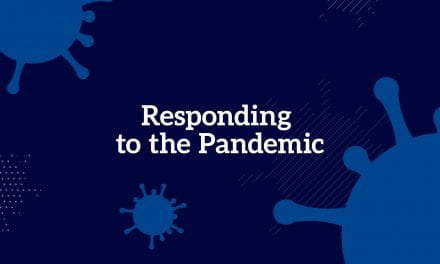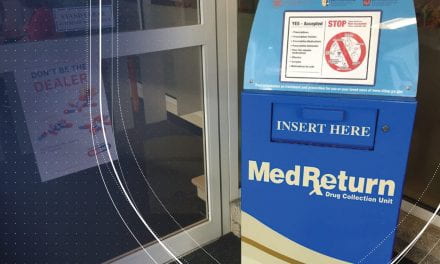We Are… Uniting Our Strengths
We Are… Uniting Our Strengths
The CCSA: Penn State Unites Against Substance Misuse and Addiction
“The impetus for the creation of the Consortium to Combat Substance Abuse (CCSA), really, was the opioid crisis,” explains Stephanie Lanza, interim director of the CCSA, C. Eugene Bennett Chair in Prevention Research, director of the Edna Bennett Pierce Prevention Research Center, and professor of biobehavioral health. “In 2017, Pennsylvania emerged as a horrifying hot spot in the opioid epidemic. That year alone, we lost more than 5,400 Pennsylvanians to opioid overdose. And, if you looked at a national map of overdoses, the problem is centered around the Appalachians and the Rust Belt. So, Penn State physically exists at the epicenter of the opioid crisis.
“At the same time, one of the five priorities of Penn State’s Strategic Plan is to advance the health of people everywhere. The intersection of this priority and the emergence of the opioid epidemic spurred Provost Nicholas Jones and the University community to action,” Lanza continued, “and our action was to create the CCSA.”
“The CCSA brings together researchers from across the University who are looking at problems related to opioids, alcohol, marijuana, tobacco, inhalants, vaping, and more.”
At a basic level, the CCSA is an interdisciplinary think tank administered through the Social Science Research Institute. The University invested in creating the CCSA to foster creative, interdisciplinary thinking that will solve real-world problems related to substance use.
“We debated about initially establishing the ‘Consortium to Combat the Opioid Epidemic,’” Lanza continued. “Opioids were the driver for action, and they continue—alongside alcohol—to be one of the most dangerous substances to Pennsylvanians and Americans. Opioids are a massive problem, but we wanted to establish a consortium that would address substance use more broadly and adapt to changing national trends. To do this, the CCSA brings together researchers from across the University who are looking at problems related to opioids, alcohol, marijuana, tobacco, inhalants, vaping, and more.”
Where HHD fits in the CCSA
Through the CCSA’s projects, new faculty hires, and working groups, researchers from the College of Health and Human Development (HHD) play a central role in the consortium. Many of the factors that interfere with effective prevention and treatment of problematic substance use are studied by HHD researchers, including adolescent and young adult risky behaviors, social conditions, stigma, the effects of addiction on the brain, genetic risk for addiction, the economic impact of the opioid epidemic, and access to health care.
“Across the United States, there are great disparities related to who does or does not have access to treatment for substance use disorders,” Lanza explained. “And when we think about Pennsylvanians and access to care, we don’t have a lot of addiction specialists out in rural counties. These are some of the areas where HHD has a great deal of expertise, particularly when coupled with strengths in other colleges and departments, including medicine, engineering, psychology, and sociology.”
We Are…Working Together Across Disciplines
“Penn State does a better job of stimulating and rewarding interdisciplinary research than any other University I know,” Lanza said.
Penn State’s institutes and consortiums actively support and promote collaborative, interdisciplinary science. These collaborations empower Penn State researchers to develop novel solutions to large, complex problems. Researchers in the CCSA collaborate to address substance use; the same approach is being used at Penn State to stimulate solutions to climate change, child abuse, and more.
In the CCSA, human behavior experts, sociologists, engineers, medical doctors, genetics experts, criminologists, neuroscience experts, and engaged researchers from a host of other disciplines work in coordination toward the common vision of a world free from addiction.
Before 2018, many research groups and research centers at Penn State were already doing vital work to address issues of substance use in Pennsylvania and around the world. The CCSA is uniting and strengthening that group of researchers to stimulate partnerships across disciplines, at campuses across the Commonwealth, and with critical state agencies and funders.
Prevention, Treatment, and Recovery
HHD researchers participating in the CCSA leverage their own expertise and their peers’ expertise to address substance use problems. In addition to basic science to understand the developmental, neurological, and genetic underpinnings of addiction, HHD researchers span the spectrum of human behavior studies to address these complex problems: prevention, treatment, and recovery.
Prevention
Stops problems related to substances before they start by addressing the risks that lead people to misuse
Treatment
Uses medicine or behavior to enable people to overcome addiction and reach recovery
Recovery
Time period when people are no longer misusing substances
For many people, recovery requires active work for many years.
Prevention
Treatment
Recovery
HHD researchers investigate different aspects of prevention, treatment, and recovery. Across the college, there are dozens of projects and collaborations addressing real-world substance use problems.
“By uniting and strengthening the expertise from units across Penn State under one umbrella, the CCSA is uniquely positioned to help build a world free from addiction,” Lanza said. “And researchers in HHD have an important role to play in building that world.”
To stay informed about the CCSA’s contribution to combatting addiction, sign up for the CCSA newsletter.






